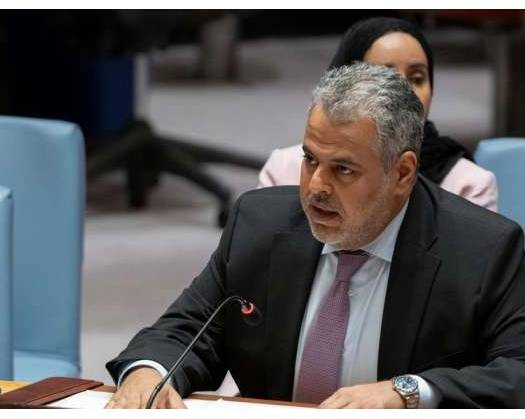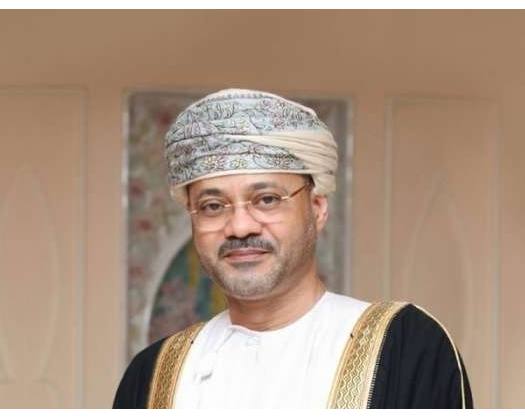New York: The Sultanate of Oman has denounced the blockade on the Gaza Strip, cautioning about the repercussions of using starvation and forced displacement as instruments of warfare. Oman highlighted the importance of holding those responsible for these heinous acts accountable.
This announcement came from Omar bin Saif Al-Kharousi, Oman’s Permanent Representative to the United Nations, who addressed the Security Council during conversations on "The Situation in the Middle East, including the Palestinian Cause. "
He pointed out that since the inception of the United Nations, the Middle East has grappled with numerous challenges, especially concerning the Palestinian issue and the inalienable rights of the Palestinian populace. He noted that Gaza has tragically become one of the most severe humanitarian crises, inflicted by the aggressive actions of Israel against countless innocent civilians.
He cautioned against global indifference to halting this violence, asserting that the ongoing massacres, widespread starvation, and targeted assaults on civilians and infrastructure—such as hospitals, schools, and shelters—represent a clear breach of international laws and amount to crimes against humanity.
The Sultanate of Oman conveyed its profound gratitude for the exceptional efforts of UN agencies, particularly UNRWA, and the field staff who persist in their humanitarian missions under dire circumstances, risking their safety to provide essential aid to the people in Gaza.
Oman has criticized efforts to undermine UNRWA’s operations and obstruct its humanitarian efforts, urging the international community to guarantee its ongoing funding and support so it can continue fulfilling its crucial role.
Additionally, Oman emphasized the importance of safeguarding UN personnel and ensuring that their missions are carried out without disruption or targeting. It stated that the Security Council should not demand adherence to its resolutions on other matters while neglecting the enforcement of its decisions regarding the Palestinian issue, particularly Resolution 2735 (2024), which called for an immediate ceasefire.
Oman has called upon the Security Council to take on its historical duty by passing a clear resolution that demands a comprehensive and immediate ceasefire, ensures international protection for the Palestinian population, and promptly recommends the admission of the State of Palestine as a full United Nations member, addressing the long-standing historical injustices that have existed for over seventy years.
The Sultanate of Oman has recognized the commendable mediation efforts of the Arab Republic of Egypt, the State of Qatar, and the United States in trying to end the aggression and establish a lasting ceasefire. It also endorses the recovery and reconstruction strategy proposed by Egypt, in cooperation with the State of Palestine and supported by Arab and Islamic countries, which offers a glimmer of hope for individuals who have faced international apathy, displacement, and devastation. Furthermore, Oman praised the efforts of the French Republic and the Kingdom of Saudi Arabia, along with the ongoing arrangements for an international peace conference aimed at advancing the two-state solution.
Moreover, Oman has emphasized that the perpetuation of settlement activities and occupation, along with the hindrance of equitable peace chances, will undoubtedly result in increased tension and further decline in the region. The sole avenue toward attaining security and stability within the Middle East involves terminating the Israeli occupation of all Arab lands, retreating from the Syrian Golan, restoring Lebanon’s complete territorial integrity, urging the occupiers to adhere to all pertinent UN resolutions, and putting an end to any efforts to assert control over the occupied territories.
In its concluding remarks, Oman has stated that the security and stability of the region can only be realized through acknowledgment of the rightful claims of the Palestinian populace, principally their entitlement to form an independent and sovereign state within the boundaries set on 4 June 1967, with East Jerusalem (Al Quds) as its capital—grounded in resolutions of international legitimacy and the Arab Peace Initiative.








